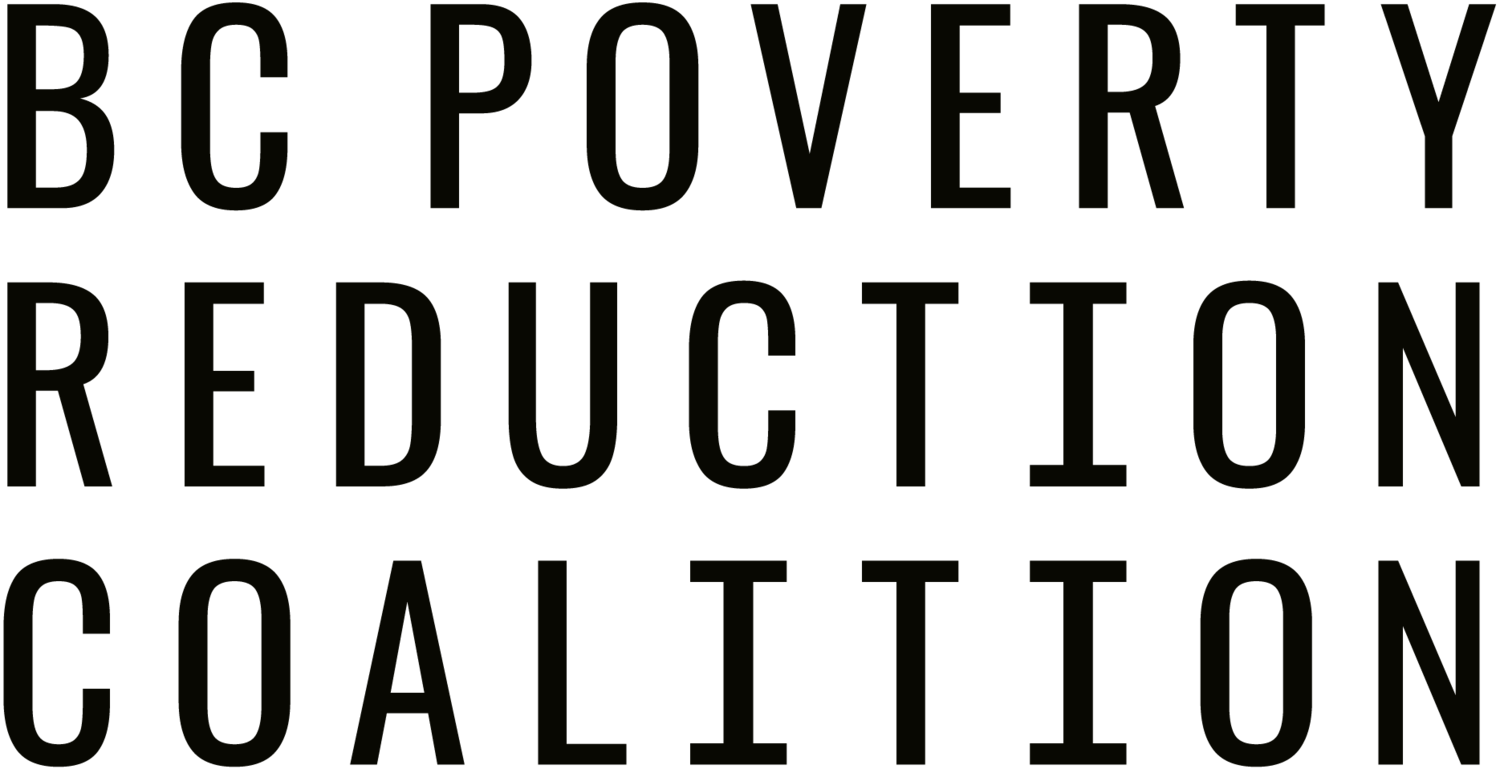Submission to BC’s 2026 Budget Consultation
Three recommendations rooted in dignity and the vision for a province without poverty.
Submitted both an oral and written recommendations to BC’s Finance and Government Services Committee responsible for the 2026 Budget consultation
Compiled by Chantelle Spicer & Sacia Burton, BC Poverty Reduction Coalition
Our policy recommendations have been noted as priorities from our coalition membership and reflect three key areas of investment we’d like to see in Budget 2026.
Recommendation 1: Index social assistance rates to inflation and remove the spousal cap
Despite numerous incremental increases to social assistance rates from this government, current rates force people into inadequate living situations and insecure food access. Indexing rates to inflation would ensure that assistance can keep up with inflation, which is weakening the spending power of increases given previously.
Due to the current spousal cap, many people are trapped in unsafe or unhealthy relationships as they cannot afford to live independently on low levels of financial support and are forced to rely on partners for survival. Program enrollment imposes strict earning caps which preclude people who are receiving assistance to surpass an income threshold. Keeping rates below the poverty line while imposing earning caps leaves thousands dependent on assistance programs with few avenues for exit. Earning caps disincentivize work and penalize those who take steps to expand their earning options.
It is critical to make investments that support the individuals and families across BC struggling with the consequences of low rates. Currently, over 557,000 British Columbians live below the poverty line, and according to the child poverty report, one in six BC children does not have enough to eat. The 2024 BC Child Poverty Report Card reveals a continuing sharp and troubling rise in child poverty across British Columbia, with 1 in 6 children—147,570 kids—living below the poverty line in the latest 2022 information from Statistics Canada. This marks a 16.8% increase from 2021.
Social safety nets and investments in well-being should be part of the nation and economy-building initiatives BC has stated it is committed to. Investing now saves money in healthcare, policing, and other costs in the future and generates investments in local economies, including supporting small businesses. There are fiscal, population health, and moral benefits to increasing these rates immediately, as we need to meet the basic needs and human rights of people in BC.
Recommendation 2: Invest in $10/day childcare
At one time, $10 a day childcare was a policy and investment legacy of the NDP government. We commend the fact that more than 15,300 of childcare spaces are part of the $10-a-day program. However, in the last 2 provincial budgets, we have seen no significant increase in this vital part of family, economic, and workforce infrastructure.
We stand with the Coalition of Child Care Advocates of BC in calling for provincial government investment in four priority areas to grow the $10-a-day program:
implement a publicly funded wage grid for early childhood educators;
invite all existing licensed child-care providers into the $10-a-day program;
eliminate school-aged child-care wait-lists through use of school sites for before- and after-school child care;
and develop a major capital budget for the expansion of new child-care spaces.
Continued and increased investment in the $10 a day childcare system is an equity issue. Without access to affordable, quality child care, many parents - particularly women and lone parent households- have no option but to leave the workforce or use unregulated care. With greater access to affordable, high-quality childcare, women will be better able to support their families, put their skills and talents to work and fully participate in their local communities and economies.
Recommendation 3: Invest in non-market housing
The housing crisis continues to deprive many British Columbians of the right to secure affordable housing, with people in poverty among those most severely impacted. According to Statistics Canada data, BC has the dubious honour of ”leading the country as the province with the highest rate of unaffordable homes.”
The current lack of affordable rental & non-profit housing is leaving thousands of British Columbians with inadequate housing. The homeless counts continue to show an increase in homelessness, and a rise in poverty rates, which impact public health outcomes, public safety, and dignity for people in BC.
While a new supply of housing through BC Builds is undeniably critical in our current environment, an over-reliance on the supply-side of housing, without considering deep affordability for low-income households at shelter rate risks perpetuating the very issues we seek to resolve. Research and lived experience consistently show that the private market – on its own – will not provide affordable and safe housing for those facing the worst expressions of the housing crisis and poverty especially if they are women or gender-diverse, Indigenous, racialized, have a disability, or are single parent households.
We recommend that Budget 2026 significantly invest in increasing the province-wide stock of all forms of social housing, including the right to housing for the lowest income peoples in our province. Affordable non-market housing options and investing in transitional housing for women fleeing violence are key priority areas that would immensely impact the housing spectrum, the non-profit sector, and the public safety of people across our province. BC needs 25,000 units of affordable housing as a starting point to build a foundation to address the housing crisis in BC.
-
Our recommendations of investing in the $10/ day childcare initiative, raising assistance rates, and increasing truly affordable housing stock through the BC Builds program will, if implemented robustly, have profound positive impacts on thousands of families and people in BC. Our recommendations are rooted in dignity and the vision for a province without poverty. We hope the BC government will take these recommendations seriously as they prepare Budget 2026.


